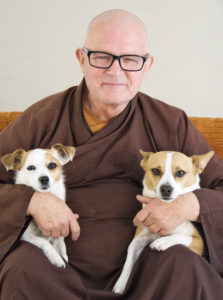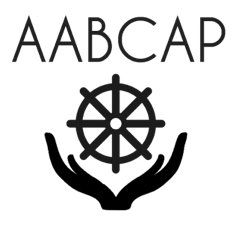
**Please note this event has been moved from September 23 to November 18**
AABCAP online workshop- Clinical Intervention and Reflective Believing:
a Process Model.
Date: Saturday 18 November
Time: 9-30am-12:30pm AEST
BOOK NOW: www.trybooking.com/CLADW
Thầy’s presentation, coming in two parts over three hours, is based in a Process Model of reflecting on clinical encounters from the point of view of Buddhist teaching.
The model can be used in reflecting on clinical situations either in a group setting or in working one to one with a supervisor and has three purposes: 1. To consider the context, process and outcome of a clinical encounter, 2. To engage in a spiritual / Dharma reflection on the encounter and 3. To remain open to personal learning / transformation based in the Dharma reflection.
In the first session: Thầy’ will present an encounter using the Process Model. All participants will receive a copy of the encounter. At the conclusion he will push back from the group who will then share their own thoughts and feelings on the presentation of the encounter. Thầy’will take notes on the participants’ responses. When all responses have been made, Thầy’will return to the group with his responses to the group’s conversation.
In the second session: One volunteer participant will present a Process Based reflection on one of their own clinical encounters within a small group. This presentation will follow the same process used Thầy’s presentation.
Thích Trúc Thông Pháp or Thầy was fully ordained in September, 2005. He ractices in the Trúc Lâm or Bamboo Forest lineage of Vietnamese Zen and his teacher is Zen master, the Most Venerable Thích Thanh Từ.
Born in Port Adelaide, South Australia, he has a B Ed in Primary School teaching, a Masters Degree in Social Sciences (Counselling) and a Diploma in Psychosynthesis. He has fifty years of work experience in numerous human service settings including teaching at every level, nursing, support work and advocacy of people labeled Intellectually disabled, eight years of University chaplaincy and five years of chaplaincy in palliative care. He also trained in Clinical Pastoral Education, supervising student chaplains over an eight year period.
He is now the resident monk with two meditation groups in South Australia, and offers a monthly dharma sharing with the Association of Engaged Buddhists in Sydney. Finally he is translating a range of dharma talks and commentaries by his teacher from French to English.

